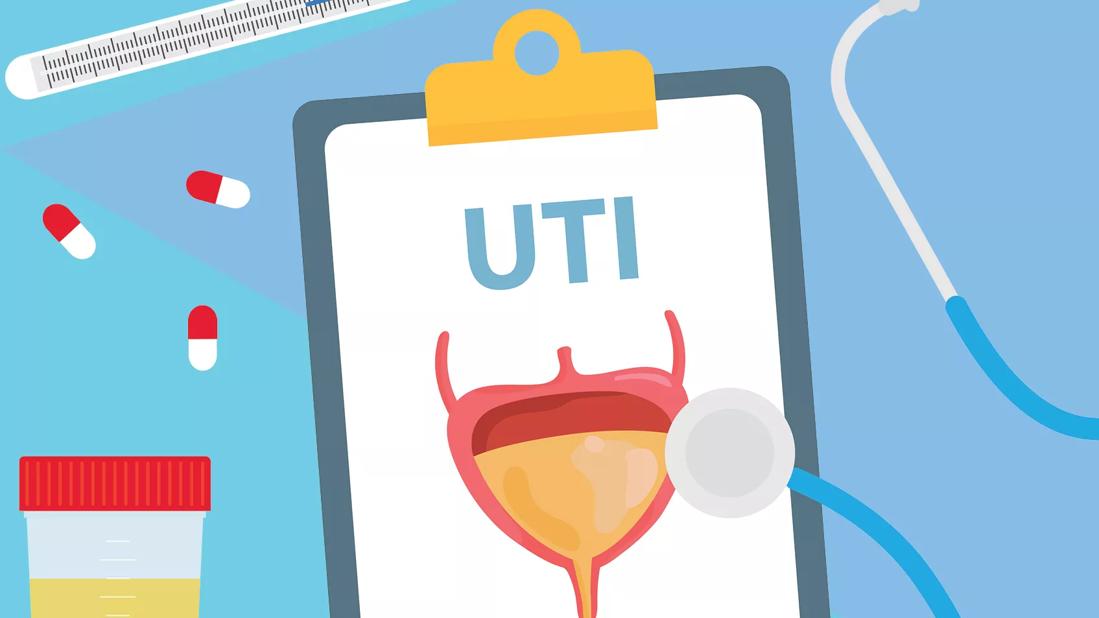Recurrent urinary tract infections are most common in women, seniors

Image content: This image is available to view online.
View image online (https://assets.clevelandclinic.org/transform/117de4ae-7567-4c5c-8478-f4f58c418efd/UTIFrequency-1297736418-770x533-1_jpg)
An illustration of a urine sample, needle, pills and a stethoscope surrounding a clipboard
Frequent, painful and urgent urination: Typical signs you may have a urinary tract infection (UTI). Maybe your pee is cloudy and foul-smelling, too. After a round of antibiotics, you feel better. But then a few months later, the symptoms return. What gives?
Advertisement
Cleveland Clinic is a non-profit academic medical center. Advertising on our site helps support our mission. We do not endorse non-Cleveland Clinic products or services. Policy
Why do you keep getting these infections? And what does it say about your health?
“The good news is that’s it’s usually nothing too serious, especially if you are a woman,” says urologist Sandip Vasavada, MD. “We see recurrent UTIs in women of all ages,” he says. (Doctors classify UTIs as recurrent if you have three or four infections in one year.)
Older adults also are more prone to recurrent UTIs.
Men can get them too, but it typically means something is blocking urination, such as kidney stones or an enlarged prostate. “And UTIs in men aren’t usually recurrent,” Dr. Vasavada says.
E. coli or other bacteria cause UTIs, which are infections in your kidneys, bladder, ureters or urethra. Unfortunately, women are more likely to get them mainly because of their anatomy.
A woman’s urethra is shorter than a man’s and closer to the anus. The urethra is also close to the vagina, which can collect bacteria during sex. So bacteria from both the anus and vagina have easy access to a woman’s urinary tract.
Post-menopausal women are also at higher risk because pH changes in the vagina make it more susceptible to infection.
Both men and women are more likely to get UTIs as they age. Certain medical conditions, such as bladder prolapse in women and enlarged prostate in men, cause incomplete bladder emptying in older adults. Urine that stays in your bladder too long can encourage bacteria to grow.
Advertisement
“Some newer drugs for diabetes can also promote sugar in the urine and create conditions ideal for a UTI,” Dr. Vasavada adds.
There are about a half-dozen oral antibiotics that treat UTIs. Sometimes a doctor will prescribe one drug, then switch to another after a urine culture identifies which bacteria is at work. Adjusting the medication can take time, and recurrent infections may occur in the meantime.
Sometimes a person starts to feel better and decides to stops taking the antibiotic — contrary to the doctor’s instructions — and another infection soon follows. It’s never a good idea to stop taking antibiotics before your dosage is complete.
“But even people who take medication as the doctor prescribes may get recurrent infections,” Dr. Vasavada says.
If you’re a younger woman who is sexually active, your doctor may prescribe an antibiotic to take before and after sexual activity. For post-menopausal women, a vaginal estrogen cream may help reduce infections.
If infections persist, your doctor may test for other health problems in the kidney, bladder or other parts of the urinary system.
There are steps you can take to help reduce UTIs. The most basic is to drink plenty of fluids. This encourages frequent urination and helps flush out bacteria.
For women, following good hygiene practices is especially important:
For older adults, take care to deal with “retention problems,” which are especially an issue as you age.
“I tell them to double-void — urinate and then go back and urinate again,” Dr. Vasavada says.
What about drinking cranberry juice to fight UTIs?
“That’s one of the most commonly asked questions,” Dr. Vasavada says. “There’s conflicting data. It’s not going to cure an infection, but it could help prevent one, so we don’t discourage it.”
Advertisement

Sign up for our Health Essentials emails for expert guidance on nutrition, fitness, sleep, skin care and more.
Learn more about our editorial process.
Advertisement
A bladder infection is definitely a UTI ... but not all UTIs are bladder infections
The benefits of a bidet may convince you to say goodbye to toilet paper
Find out whether you should head to the bathroom after the bedroom
The ins and outs of urinary tract infections
3 tips for preventing urinary tract infections
Manage your sexual health and urinary function with annual appointments starting at age 40
Signs to look out for include pain and changes in frequency or urgency
Three strategies to keep your shower a safe haven
Type 2 diabetes isn’t inevitable with these dietary changes
Applying a hot or cold compress can help with pain
Pump up your iron intake with foods like tuna, tofu and turkey